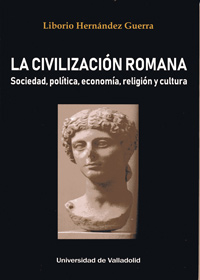ROMAN CIVILIZATION: SOCIETY, POLITICS, ECONOMY, RELIGION, AND CULTURE
Keywords:
roman civilization, historySynopsis
This monograph is a comprehensive study of Roman civilization. The origin of the Roman city remains enigmatic, although no different from that of other cities. Rome was founded on the Tiber River on April 21, 753 BC, as a small town whose main activity was agriculture. Roman culture was particularly urban and dominant, with the colonies founded by Italian emigration or military settlements reproducing the Roman model. Proof of this is that Rome created hundreds of cities, but it had a single concept of the city. The history of Rome must be studied through what happened in the Italian peninsula during its initial stages, but, beginning with the Classical Republic, the expansion of the Romans throughout the Mediterranean, occupying different areas in Africa, the East, and Europe, allows us to consider a space of immense dimensions. The origin of Rome and the birth of the Republic are enigmatic events that raise numerous hypotheses as archaeological discoveries have emerged and provided various data. Some authors, such as Varro, link its origin to the legend of the twins Romulus and Remus; however, others, based on archaeological data, consider that it cannot date back earlier than the 6th century BC. Today, there is a tendency to combine Roman tradition with archaeological data. The new city-state model focuses on the Roman ciuitas and, especially, on its sociopolitical, religious, economic, cultural, and institutional aspects. The social and institutional model, based on the Greek type of city—the polis—allowed the Romans to establish a city model that played a leading role, as did law, the military, and other aspects. This model was based on legal privileges, that is, on a system designed by and for minorities on a broad social and economic basis. The instrument Rome used was Roman citizenship, which was built on internal relations and functioned as long as the state moderated its fiscal appetites and satisfied the personal interests of the social elites. Culture was the result of the various contributions of different civilizations that contributed to shaping the universalization of their culture, the use of Latin as the common vehicular language of all conquered peoples.

Price
21.15 EURPublished
Categories
Right Holder
Ediciones Universidad de Valladolid y autor(es)/autora(s) 2019License

This work is licensed under a Creative Commons Attribution-NonCommercial-NoDerivatives 4.0 International License.

